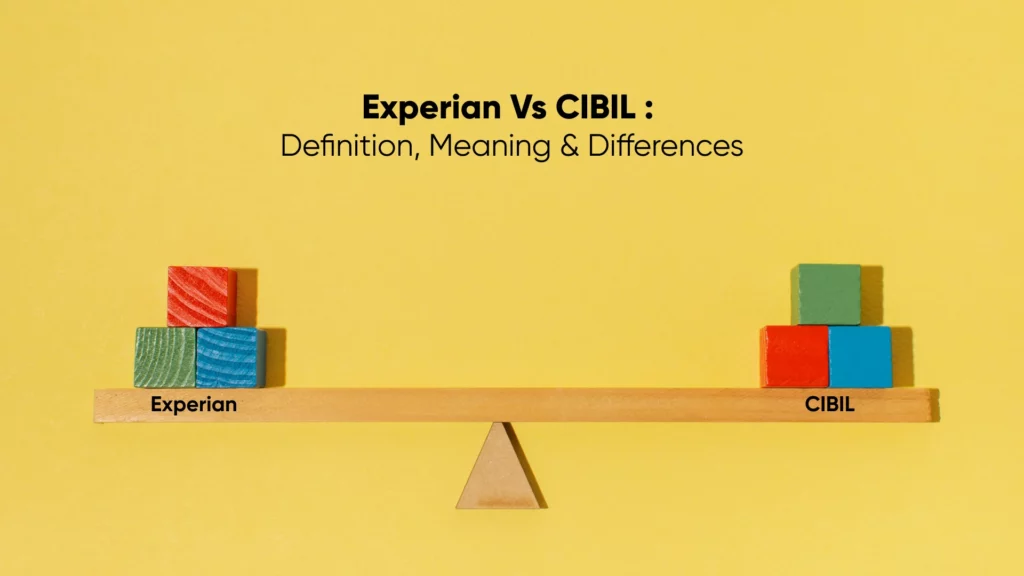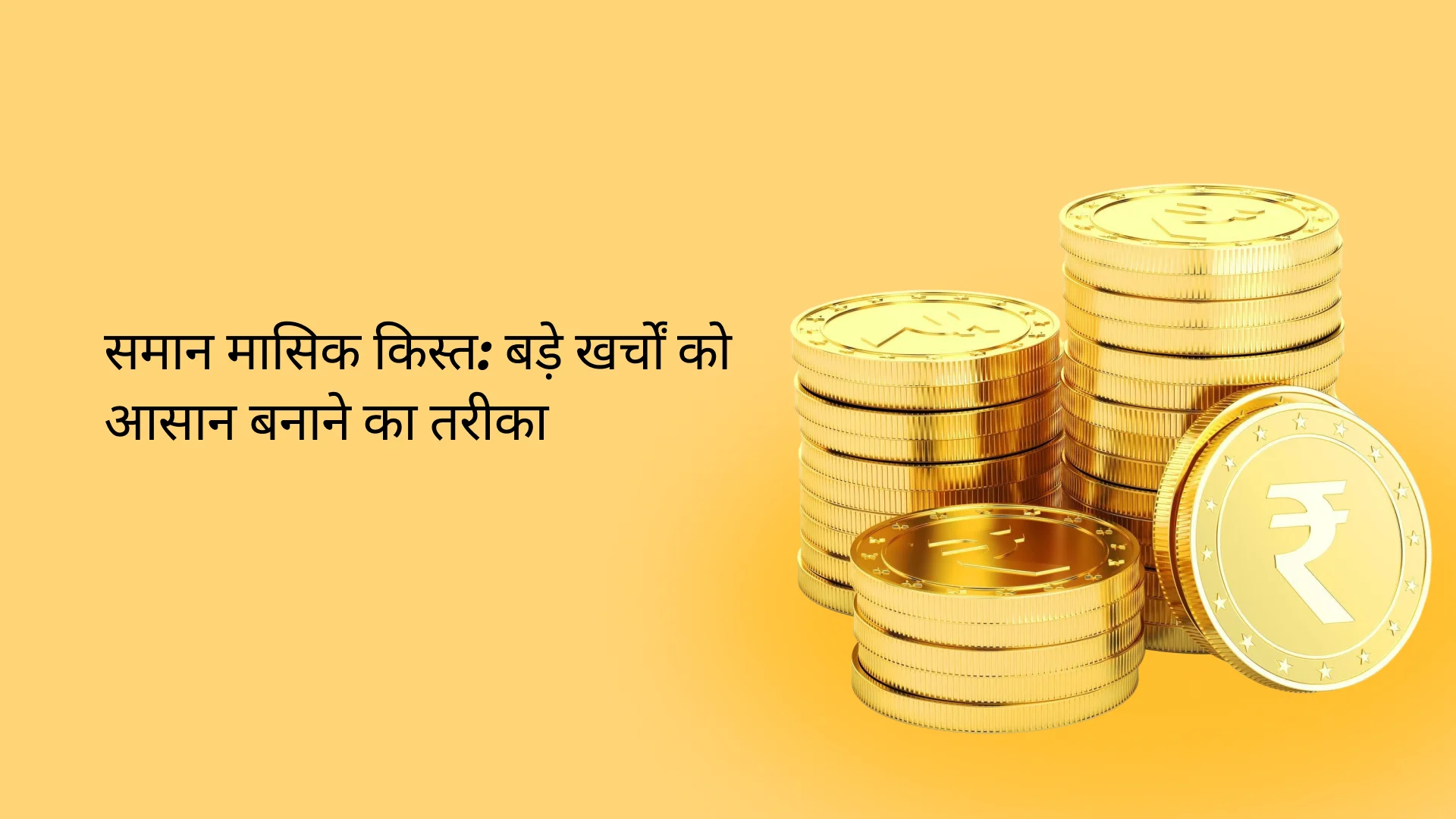Experian Vs CIBIL : What are the Differences, Meaning & Important

Both Experian and CIBIL are leading credit bureaus in India that assess creditworthiness. However, Experian is a global company, whereas CIBIL is India-specific. They differ in their data sources and scoring models, which can lead to variations in credit scores. Understanding these differences can help you better manage your credit profile and financial health.
Table of Contents
ToggleWhat is Experian?
Experian is a leading global information services company and a trusted credit bureau, providing data and analytical tools to help individuals, businesses, and society make informed financial decisions. With deep expertise in the financial sector, Experian empowers smarter choices by delivering accurate insights and reliable credit information.
What is CIBIL?
Credit Information Bureau (India) Limited, or CIBIL, is the first credit information company in India. It collects credit information from financial institutions and tracks credit reports and scores for both people and businesses. With the help of CIBIL, lenders can make an informed credit decision. The CIBIL credit reports contain detailed information about an individual’s or business’s credit history, including payment patterns, debt-to-credit ratios, credit utilisation, and more.
Difference Between Experian And Cibil
Let’s understand why Experian and CIBIL scores are different. Few points on difference between CIBIL and Experian occur are:
| Point of difference | Experian | CIBIL |
| Data | Experian uses data from various sources globally. | CIBIL collects data majorly from banks and financial institutions. |
| Scoring Models | Experian uses the FICO model for scoring | CIBIL’s model is more specific to the Indian financial market. |
| Market Presence | Experian is widely used in multiple countries | CIBIL is widely used in India |
| Range | Experian specifies a range of 300-850. A credit score of 700 and above is considered good | CIBIL specifies the same at 300-900. A score above 700 is considered good |
Factors Affecting Experian and CIBIL Scores
Payment History: Payment history is one of the important factors that affect credit scores. It shows your track record and reflects your past payments. Late payments or defaults on your past payments can impact your credit score. You will eventually find it difficult to get credit.
Credit Utilisation: Credit utilisation refers to the amount of credit you are using to the total amount of credit available to you. It’s a ratio of your credit limit that you’re using at any given time. 30% is a widely recommended credit utilisation rate.
Length of Credit History: This refers to how long you have been using credit. It is important to determine your credit score. The longer credit history is generally seen as a positive indicator of financial responsibility. It demonstrates the ability of an individual to manage credit well over a longer period.
Credit Mix: Credit mix refers to the various types of credit accounts you have in your financial portfolio. Lenders consider the different types of credit you manage, such as credit cards, mortgages, secured and unsecured personal loans, etc. to assess your credit record. It is important to diversify your credit record, however, managing credit accounts responsibly and avoiding opening unnecessary accounts will keep your portfolio positive and diversified.
Recent Credit Activity: When you open new credit accounts within a certain period which is closely assessed by lenders and credit scoring models is called recent credit activity. When you apply for new credit, whether it’s a credit card, the lender typically takes a close look at your credit report. However, multiple inquiries within a short period can negatively impact your portfolio.
Also Read: How to Get a Perfect 900 Credit/CIBIL Score?
Importance of Experian and CIBIL Scores
Experian and CIBIL scores are crucial as they reflect an individual’s creditworthiness and financial responsibility. Lenders use these scores to evaluate loan applications, determine interest rates, and set credit limits. Maintaining a good credit score is essential for accessing credit on favourable terms and achieving financial goals. These scores provide lenders with details about their credit history and repayment behaviour, making lenders an informed decision.
A good credit score indicates a history of responsible borrowing and timely repayments. Moreover, maintaining a positive credit history can benefit you in the long run, as it contributes to building a solid financial reputation. By consistently monitoring and managing their Experian and CIBIL scores, individuals can take proactive steps to improve their creditworthiness leading to financial success.
Conclusion
Experian or CIBIL scores are important to an individual. Understanding the differences between CIBIL and Experian and the factors affecting credit scores is essential for managing personal finances effectively. Regularly monitoring and improving credit scores can eventually lead to financial opportunities. You will have several lender options if your credit score is good, and you repay personal loans on time. Moreover, a thorough understanding of Experian and CIBIL enables lenders to make informed decisions while giving loans.
Frequently Asked Questions
What Is The Meaning Of Experian?
Experian is a multinational data analytics and credit reporting company that provides data across the globe which provides reports and credit scores to individuals and businesses.
What Is The Meaning Of Cibil?
CIBIL (Credit Information Bureau India Limited) is a credit information Indian company licensed by RBI that provides data reports and credit scores to individuals and businesses.
What Is A Good Credit Score?
The credit scores between a scale of 300 to 900 in India and a credit score between 660 to 724 are considered good. However, the best practice is to maintain a credit score of above 750.
How Does Experian Calculate Credit Scores Compared To Cibil?
Experian collects information and data from various sources which mainly includes banks and financial institutions across the globe. CIBIL’s model focuses more on the Indian financial market. CIBIL collects credit information from Indian lending institutions and financial entities.
Which Credit Bureau Is More Widely Used In India, Experian Or Cibil?
CIBIL is the credit bureau that is most widely used in India.
How do lenders interpret Experian or CIBIL scores when assessing creditworthiness?
A higher credit score concludes a better credit history, and a low score indicates more chances of defaults on an individual’s side. Hence, lenders can lend money to the borrowers based on the borrower’s credit score.
Can I Have Different Scores From Experian And Cibil?
Both Experian and CIBIL use different parameters, methods, and algorithms to determine scores and prepare credit scores.
How Often Are Experian And Cibil Scores Updated?
Experian and CIBIL scores usually get updated every month
YOU MAY ALSO LIKE

Search by posts
Recent post
-
 Instant ₹10,000 Loan Without Salary Slip – Quick Approval
Instant ₹10,000 Loan Without Salary Slip – Quick Approval
-
 समान मासिक किस्त: आपकी वित्तीय खर्चों को आसान बनाने वाला तरीका
समान मासिक किस्त: आपकी वित्तीय खर्चों को आसान बनाने वाला तरीका
-
 Apply for 50000 Rupees Loan Urgently: Get Disbursed in Few Minutes
Apply for 50000 Rupees Loan Urgently: Get Disbursed in Few Minutes
-
 How to get Instant Loan on Aadhaar Card without Salary Slip
How to get Instant Loan on Aadhaar Card without Salary Slip
-
 How to Apply for a Rs. 25,000 Loan on an Aadhaar Card?
How to Apply for a Rs. 25,000 Loan on an Aadhaar Card?
Categories
- Blog (6)
- Credit History (36)
- Credit Line (7)
- Festive (4)
- Finance (15)
- Mutual Fund (19)
- Personal Loan (276)
- Tax (8)
- Zype (4)













